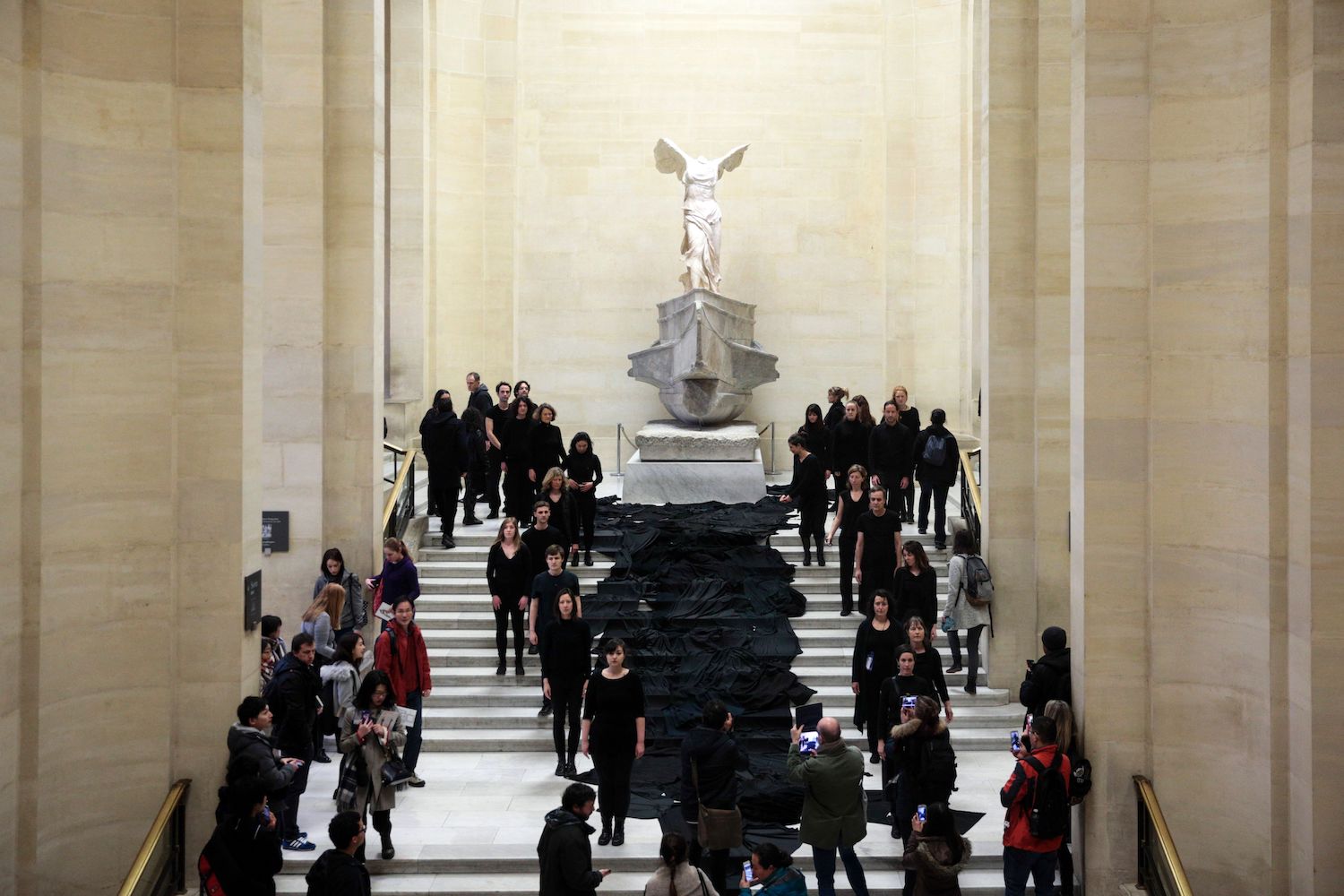
This past Sunday, anti-oil activists staged a protest performance at the Louvre Museum in Paris, calling for the museum to drop its sponsorship deal with the oil and gas company Total.
Around 40 activists dressed in black climbed the museum’s marble staircase, gathered at the foot of the famous Winged Victory of Samothrace statue, took off their black scarves, jackets, and shirts and arranged them on the ground to create a symbolic oil spill. They also handed out leaflets reading “Total supports the Louvre / The Louvre supports Total – #zerofossile.”
The protest performance, which was witnessed by many tourists, lasted for around three minutes.
The protest is part of a campaign launched in January by the group “Libérons le Louvre” (Liberate the Louvre)—led by the American NGO 350.org and that includes Greenpeace, Alternatiba, and Friends of the Earth—asking the Louvre to end its sponsorship deal with oil giant Total, ongoing for nearly 20 years.
According to 350.org, more than 10,000 people have signed the petition so far.
In January, the Louvre president Jean-Luc Martinez sent a letter to 350.org France stressing the “decisive financial support” that Total affords the museum, in terms of funding for exhibitions, renovations, cultural education, and social action.
“Libérons le Louvre” follows the successful resolution in March 2016 of “Liberate Tate,” the long-standing campaign to end the 26-year sponsorship deal between BP and Tate in London.
“We think this funding is not so important,” Nicolas Haeringer, head of campaign of 350.org France, told AFP. “It took six years and 16 performances of art-activism to end the partnership between London’s Tate Gallery and BP. If we have to come to the Louvre for six years, we will,” he added.
The Louvre Museum hadn’t replied to artnet News’ request for comment at the time of publishing.